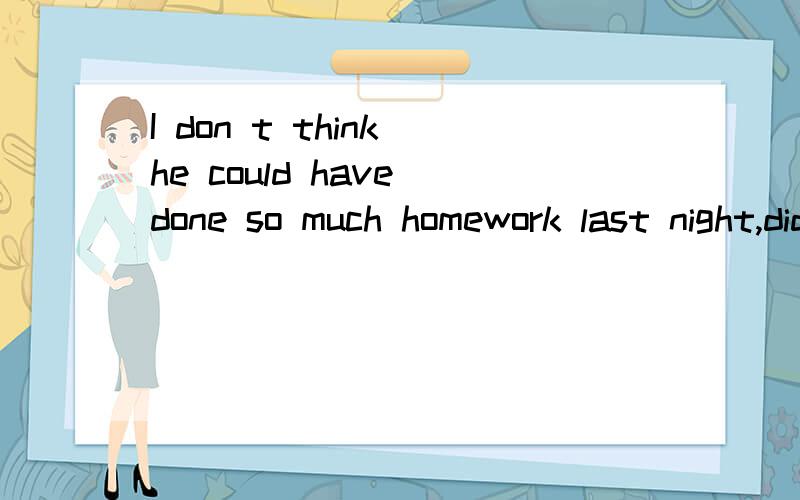I don t think he could have done so much homework last night,did he?表推测的反意疑问句的问题..1.I don t think he could have done so much homework last night,did he?2.I don t think he could have done so much homework,has he?我知道第一
来源:学生作业帮助网 编辑:作业帮 时间:2024/04/23 15:18:07

I don t think he could have done so much homework last night,did he?表推测的反意疑问句的问题..1.I don t think he could have done so much homework last night,did he?2.I don t think he could have done so much homework,has he?我知道第一
I don t think he could have done so much homework last night,did he?表推测的反意疑问句的问题..
1.I don t think he could have done so much homework last night,did he?
2.I don t think he could have done so much homework,has he?
我知道第一句表示对过去事实的否定推测,所以用过去时,但是为什么第二句把last night去掉后就变成用has he了?
I don t think he could have done so much homework last night,did he?表推测的反意疑问句的问题..1.I don t think he could have done so much homework last night,did he?2.I don t think he could have done so much homework,has he?我知道第一
情态动词+have 过去分词 都表示对过去的事实进行推测,与表示过去时间的状语连用时,相当于一般过去时.如:You must have stayed very late last night,didn't you?
但是,不与过去时间连用时,则指过去的动作对现在产生影响,相当于现在完成时.如:
You must have seen the film Titannic,haven't you?你肯定看过电影泰坦尼克了,不是吗?(那我就不邀你去看了)
过去完成时
有明确时间的用过去时,没有明确时间,但已完成了,用过去完成时。
如果有明确的表示过去的时间状语,就按过去时理解,所以did he;否则按照完成时理解